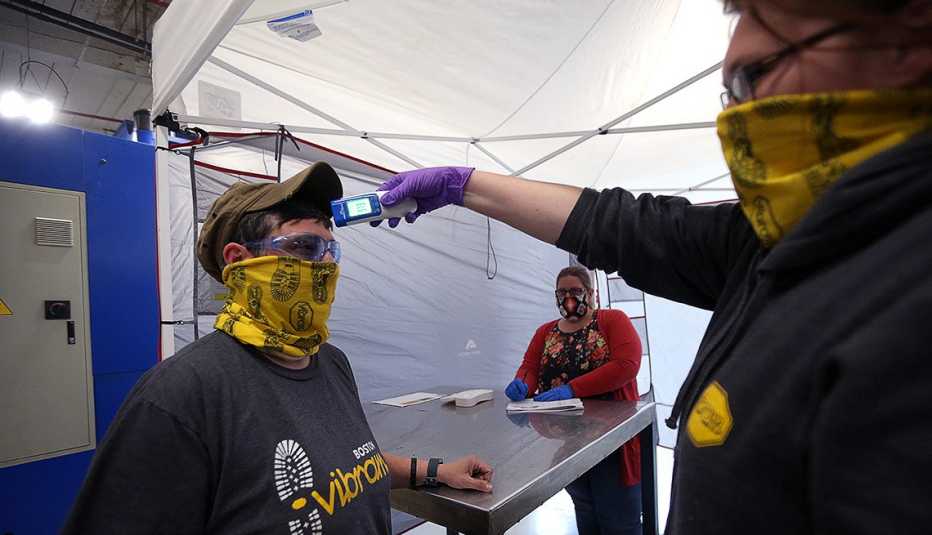Staying Fit
With millions of people out of work and millions of others forced to work from home, the pandemic has reshaped the nation's labor force. And it's not done yet. As the unemployed look ahead to getting hired and remote employees prepare for a return to the workplace, many are contemplating the same question: Can they be required to get a COVID-19 vaccination if they want to keep their jobs?
The question has become more urgent since the U.S. Food and Drug Administration (FDA) granted Pfizer-BioNTech vaccine full approval on August 23. The short answer: Yes. An employer can make a vaccination a requirement if you want to continue working there. But there are significant exceptions for potential concerns related to any disability you may have and for religious beliefs that prohibit vaccinations. But now, with many Americans still hesitant to get vaccinated even as the delta variant spreads, more employers are telling workers they either need to be vaccinated or comply with a rigorous regiment of testing, wearing masks and practicing physical distancing if they want to return to work. Refusal to be vaccinated could lead to job loss and also make a person ineligible for unemployment benefits.


AARP Membership— $12 for your first year when you sign up for Automatic Renewal
Get instant access to members-only products and hundreds of discounts, a free second membership, and a subscription to AARP the Magazine.
On Dec. 16, the Equal Employment Opportunity Commission (EEOC) confirmed that a COVID-19 vaccination requirement by itself would not violate Americans with Disabilities Act (ADA). That law prohibits employers from conducting some types of medical examinations. On May 28, the EEOC reaffirmed that employers can require workers who are returning to offices to be vaccinated for COVID-19.
“If a vaccine is administered to an employee by an employer for protection against contracting COVID-19, the employer is not seeking information about an individual’s impairments or current health status and, therefore, it is not a medical examination,” the EEOC says. The U.S. Department of Justice also has determined that it considers employer vaccine mandates to be legally permissible.
But some employees may be exempted from mandatory vaccinations based on potential concerns related to any disability you may have and for religious beliefs that prohibit vaccinations. And experts say that employers are more likely to simply encourage their workers to get immunized rather that issue a company-wide mandate.
"Employment in the United States is generally ‘at will,’ which means that your employer can set working conditions,” says Dorit Reiss, a law professor at the University of California, Hastings, who specializes in legal and policy issues related to vaccines. “Certainly, employers can set health and safety work conditions, with a few limits."
What workers can do
• Seek a vaccine exemption on medical grounds
• Seek a vaccine exemption due to religious beliefs
• Ask for alternative accommodations such as use of personal protective equipment, working separately or working from home
Those restrictions generally are tied to the federal Americans with Disabilities Act (ADA) and Title VII of the Civil Rights Act of 1964. If employees have medical reasons or sincerely held religious beliefs that prevent them from taking a potential coronavirus vaccine, employers could be legally required to give the workers some reasonable alternative to continue to work, Reiss says.
The EEOC guidance notes that even if an employer finds that a worker who cannot be vaccinated due to disability poses a risk to the workplace, the employer cannot exclude the employee from the job — or take any other action — unless there is no way to provide a reasonable accommodation that would reduce this risk to others.
"That might be a [wearing a] mask, a working from home, or a working separately from other people alternative. As long as it's not too significant a barrier for the employer,” Reiss says. “If you can achieve the same level of safety as the vaccine via mask, or remote working, you can't fire the employee. You need to give them an accommodation."




































































